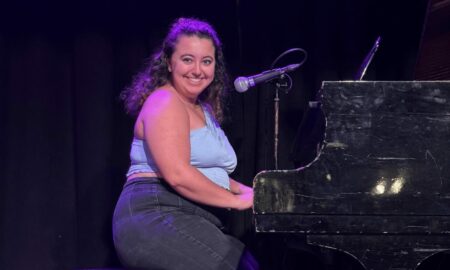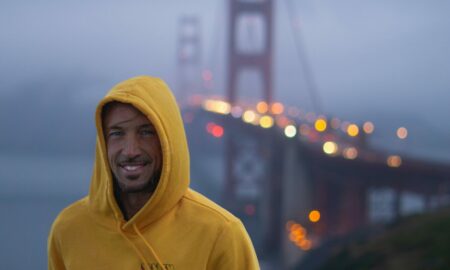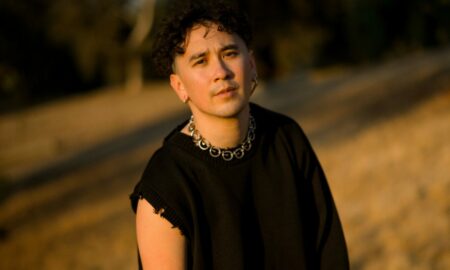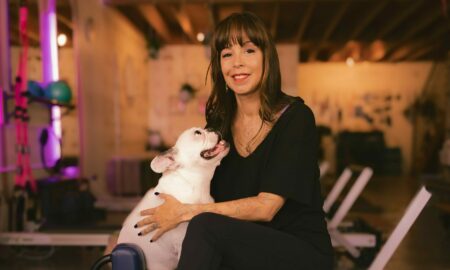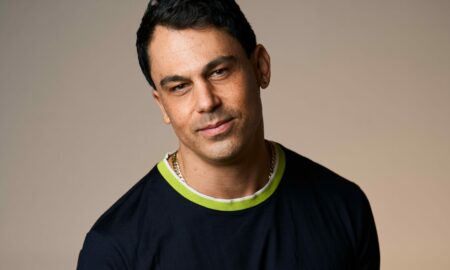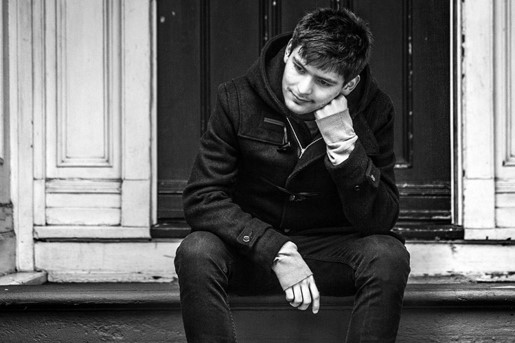

Today we’d like to introduce you to Juan Cortés.
Juan, let’s start with your story. We’d love to hear how you got started and how the journey has been so far.
My passion for music first started when I was in high school. My friends and I used to meet after school to play our favorite songs, I usually played the guitar. This first experience made me realize how music led me to connect with other people in a very intimate way.
My love for guitar playing led me to discover famous bands like The Mars Volta and Dream Theater, both of which were formed at the Berklee College of Music. I decided to follow their path and apply to this prestigious music school, knowing that a young Colombian boy had very little chance of getting accepted. But, to my surprise, I was accepted into the Guitar Performance program.
At the beginning of my studies at Berklee, I believed I was destined to become an acclaimed guitar player. But a hand injury forced me to rethink my future and consider a different professional path. I decided to look for an option where I could still make music without using my hand. This is when I started writing and composing my first songs. I also realized that there were more opportunities for my music to be performed at the Film Scoring program than in any other compositional program. This is when my passion for film and television first started.
After my graduation, I came for an internship in LA. As an intern, I quickly realized that the world of film music was very competitive and aggressive. This encouraged me to create opportunities for myself, like developing an old initiative that started at college called Hexany Audio -a company that creates sounds and music for videogames.
However, deep down I felt like I wanted to pursue film and I landed a job as a midi orchestrator for a very well known film composer. This job helped me realize how unprepared I was to assume the challenges that come with writing music for film, which encouraged me to look for mentors that would guide me and help me develop the necessary skills to succeed in the entertainment world.
One of these mentors was Federico Jusid, a distinguished Argentine musician and composer. Federico hired me as a midi orchestrator for his music film company Metronome MP, but our relationship went beyond a professional one. I see him as a role model that has instilled in me a strong work ethic and discipline. He has taught me the importance of continuing to learn and not being overly confident in your abilities.
We’re always bombarded by how great it is to pursue your passion, etc – but we’ve spoken with enough people to know that it’s not always easy. Overall, would you say things have been easy for you?
One of the biggest struggles I’ve had to face is being away from home for so long. All my family and childhood friends are in Colombia, a country with a rich and joyful culture that I miss dearly.
At a more professional level, it has been hard for me to keep up with the expectations of a fast-paced industry where working 60+ hours a week is the norm. It is easy to get caught in this turbulent work rhythm and forget your identity as a music artist. It is also difficult to listen to others’ opinions while making sure your voice is being heard. Making music for film and television is a collaborative process where everyone is expected to pitch in and have an opinion, but sometimes a difference in opinions hinders the process.
We’d love to hear more about your work and what you are currently focused on. What else should we know?
I am currently working for Metronome MP, a company focused on writing and producing music for film and television. My job is to compose and write original music that captures the essence of each story. Also, as an orchestrator, my job is to write the score and parts for instruments like violins, flutes, trombones and cellos.
But I think that one of the most interesting aspects of my job is how to find new sounds using unconventional elements along with those traditional orchestral instruments. An example of this would be playing a piano part using a hammer to hit the strings of the piano. I have also used other crazy objects like pencils, nails, and coins to find the perfect sound that would capture the essence of each scene.
Some of our most important projects have been the Netflix miniseries “Watership Down,” (2018) an animated miniseries directed by the Israeli film producer Noam Murro; “Neruda,” (2016) a film directed by the Chilean Pablo Larrain and nominee of the Golden Globe Awards for Best Foreign Language Film; and “Loving Pablo,” (2017) a film starring the renowned actors Javier Bardem and Penelope Cruz.
What were you like growing up?
I was more of an introvert when I was growing up, but I was lucky enough to have a good number of caring friends who would support my creative endeavors. Thanks to them, I discovered my passion for music and films. We shared personal stories, sang and played our favorite songs, and went to the theater every once in a while.
But growing up in Colombia was not always easy. Back then, the country was going through complex political and social conflicts that would influence the way people thought and interacted with each other. Many people encouraged me not to pursue my dream to become a musician, probably because they thought I had no chance to succeed in such a competitive and unstable environment.
I wanted to prove them wrong and demonstrate that my passion for music, my self-discipline, and my creative power were enough to take me anywhere I wanted. And I did.
Contact Info:
- Website: https://www.juan-cortes.com
- Email: [email protected]
- Instagram: @juancortesarango
- Other: https://www.imdb.com/name/nm6529983/





 Image Credit:
Image Credit:
Yuki Yuan
Suggest a story: VoyageLA is built on recommendations from the community; it’s how we uncover hidden gems, so if you or someone you know deserves recognition please let us know here.













